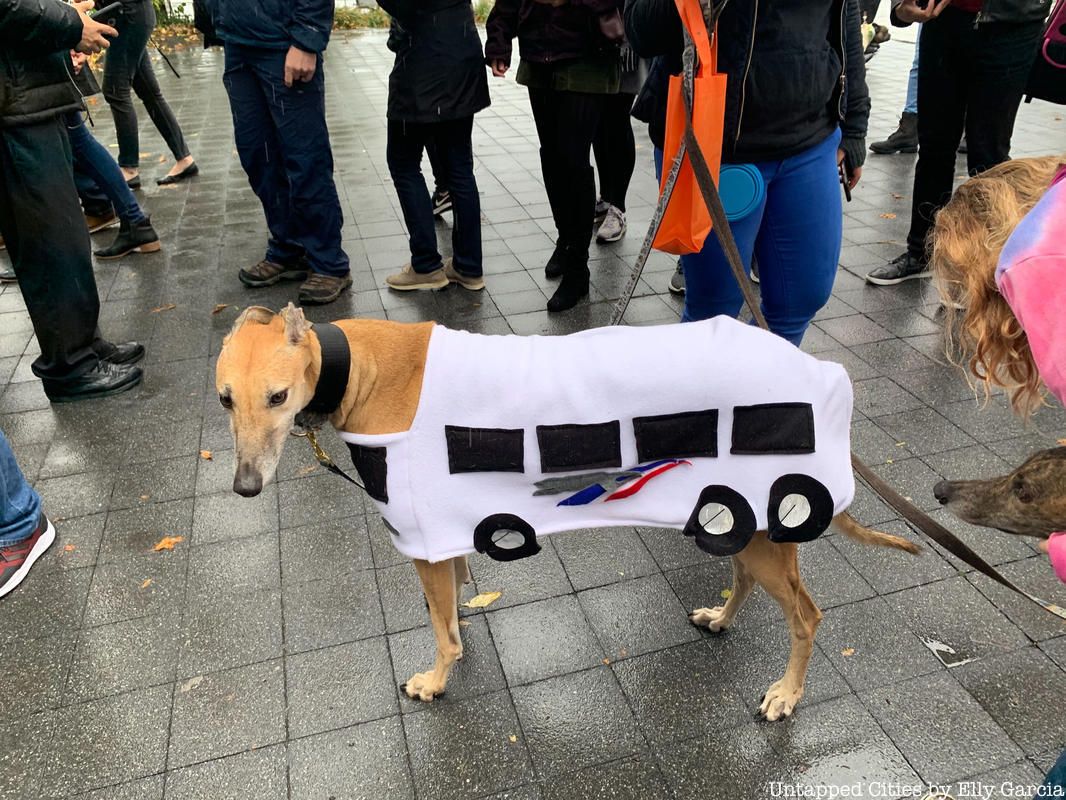Spring Photo Walk at The Green-Wood Cemetery
Capture striking photographs of the gorgeous grounds and statuary of The Green-Wood Cemetery with the expert guidance of photographer Bethany Jacobson!


Much of what New York City has to offer is off-limits to our canine companions (yes, even the AKC Museum of the Dog)—but not Barnard College’s Dog Cognition Lab. Located in a nondescript room on the Upper West Side, the lab was started in 2008 by Dr. Alexandra Horowitz, a professor in Barnard’s psychology department who runs experiments that shed light on how canines see the world.
Readers envisioning row after row of wary pooches confined to cages with scientists in white coats looking on will be relieved to learn that the Dog Cognition Lab is a far friendlier space. No dogs live here; they’re brought in for the day by their owners. “They come with their people and they stay with their people through the trials, and they go home with their people,” says Dr. Horowitz.
The lab maintains a database of dog owners who are alerted to studies, and social media offers another opportunity to find potential subjects. Most of the dogs Dr. Horowitz has worked with belong to Upper West Side residents, but some owners bring their pets in from New Jersey; last year, a woman from Virginia drove up with her dog.
The Dog Cognition Lab is “essentially an office with all the office-furniture bits removed,” says Dr. Horowitz. “This allows us to make the experimental theater be whatever we need it to be.” Right before the pandemic forced shutdowns, the lab was studying dogs’ “sense of their own size as they tried to pass through a doorway that keeps getting shorter. Right now the room is dominated by the apparatus we built: a large wooden frame with an opening, and a Plexiglas ‘door’ that we can move at specific increments.” Additionally, many studies are done out in the field (in parks, in people’s homes, or anywhere else dogs can be found).
The goal of the Dog Cognition Lab is, according to its website, “to get a handle on what dogs perceive and know by presenting them with puzzles, novel objects, and short games at the lab with their owners.” Dr. Horowitz has studied a variety of topics, including how dogs play (both with one another and with their humans) and whether dogs understand fairness.

Dogs perceive the world nose-first, so it’s no surprise that one of Dr. Horowitz’s favorite studies centers on smell. Humans and many nonhuman primates can recognize when a red dot has been placed on their face; glancing in a mirror, they’ll easily remove the mark. Dogs fail the “mirror mark” test, but Dr. Horowitz found that if their odor is marked by an unfamiliar one, they’ll demonstrated increased interest—which, she says, suggests “that they recognize their own odor as ‘themselves.’”
Because of the closures related to COVID-19, the Dog Cognition Lab isn’t open to anyone. Instead, it’s running several remote studies on topics such as how dogs play with cats, how well dogs remember new tricks, and canine problem-solving, and invites dog owners to participate. “One positive result of this transfer to remote studies is that we can reach people all over the world who might be interested in participating in research but don’t get the chance.”
However, even pre-pandemic, the only human visitors were researchers and dog owners. “We don’t want to have additional distractions of other people—and the presence of other people is distracting to social animals like dogs. Also, we don’t have room to fit any more people in there!” says Dr. Horowitz.
In addition to running studies at the Dog Cognition Lab, Dr. Horowitz is committed to helping dog owners gain a better understanding of their canine pals. She’s published several books including Inside of a Dog: What Dogs See, Smell, and Know, and has appeared on NPR and written for the New York Times on dog ownership in the age of the pandemic. With more employees forced to work from home, many people have decided to adopt pets. Dr. Horowitz has words of advice for prospective pet owners. “Although dogs are terrific at interacting with people, as a species, no dog knows what is expected of them when they come to your home. In fact, because they seem to slip in so easily to our families, we forget how much they don’t know about living with humans. Treat them kindly, gently, and patiently, as the newcomers they are.”
Next, check out what’s inside the AKC Museum of the Dog in NYC!
Subscribe to our newsletter